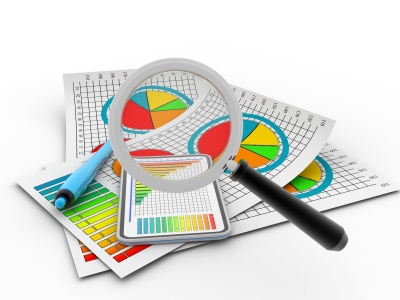ERP Consultant Review: 3 Questions Prospects Ask About ERP
As ERP consultants, there are many questions we get from clients and potential customers who are searching for upgrade options and new ERP...
2 min read
John Peace Fri, Jan 24, 2014

 As ERP consultants, we have seen tremendous progress over the last few years in how our customers get information about their business with the introduction and evolution of business intelligence. Since the early 80’s small businesses have relied on spreadsheet software programs like VisiCalc and Lotus 1-2-3 for budgeting and forecasting. In many cases, the spreadsheet remains the standard tool for analysis and reporting today. Most business professionals understand how to use Microsoft Excel, and a well-crafted Excel spreadsheet solution may be all the technology that an SMB needs to get started in business.
As ERP consultants, we have seen tremendous progress over the last few years in how our customers get information about their business with the introduction and evolution of business intelligence. Since the early 80’s small businesses have relied on spreadsheet software programs like VisiCalc and Lotus 1-2-3 for budgeting and forecasting. In many cases, the spreadsheet remains the standard tool for analysis and reporting today. Most business professionals understand how to use Microsoft Excel, and a well-crafted Excel spreadsheet solution may be all the technology that an SMB needs to get started in business.
However, as your business grows you may face greater complexities. Maybe you operate in multiple locations or across multiple currencies; maybe you are facing a software audit, or perhaps you are in an industry that requires compliance with regulations like Dodd Frank and HIPAA. If you find yourself facing these types of business challenges, maybe it’s time to move from spreadsheet-dependent processes toward more sophisticated planning and forecasting tools.
Today’s Enterprise Resource Planning (ERP) systems offer robust financial reporting capabilities and quick consolidation of financial data which allows finance departments to focus more on key performance indicators instead of having to attend to manual data exports and analysis. New Business Intelligence (BI) reporting software not only provides more and better details of your organization’s data for analysis purposes, it also encourages more input from management.
SMBs are increasingly looking for BI reporting software that can be used by managers and other nontechnical users and vendors have responded by making BI tools that are easier to use and more affordable. Newer technologies such as cloud solutions with web and mobile interfaces, collaborative decision-making, improved data visualization are making BI tools much more attractive to SMBs.
Purchasing BI reporting software definitely represents an investment of both money and time, so before investing in BI tools, it’s important to think about what data you have and what answers you’re looking for. If you don’t keep or have access to quality operational data, then it probably doesn’t make sense to purchase BI software. Or if the volume of data is small enough that one person can look at it and reach accurate conclusions, then you can probably get by without a report writer.
However, if your company is ready, then BI reporting tools can help you increase your business’s market share and compete with larger shops. The intelligence gleaned can provide insights into trends that otherwise can't be seen, for example, the cost of acquiring new customers over time. If you’d like to learn more about how ERP and BI tools can benefit your bottom line, contact us at AccountNet for a free Needs Assessment.
Another version of this article was originally posted on AccountNet’s Blog on January 14, 2014: http://www.accountnet.com/business-intelligence-mean-small-medium-business-owner/
Photo courtesy of www.freedigitalphotos.net

As ERP consultants, there are many questions we get from clients and potential customers who are searching for upgrade options and new ERP...
As ERP consultants, we work with many small to medium sized businesses who are finally able to take advantage of Enterprise Resource Planning (ERP)...

1 min read
As ERP consultants, it is our mission to keep up with available ERP solutions so we can help our clients find the best fit for their unique business...